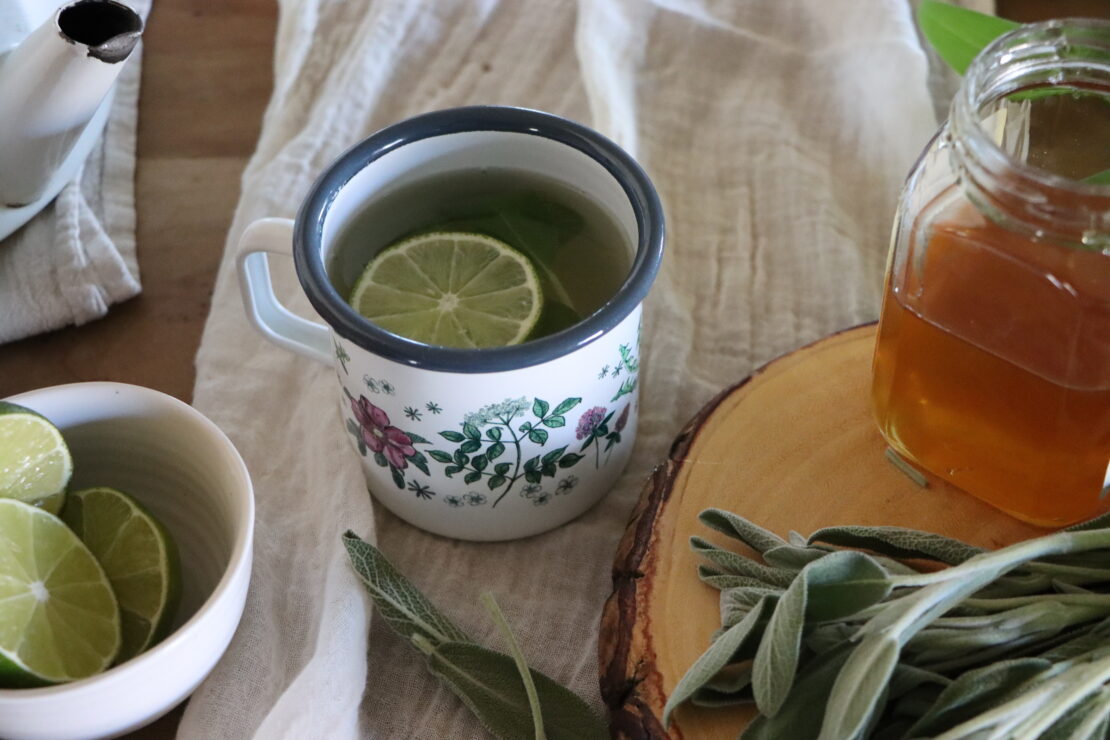
Abuelita’s Sore Throat Tea Recipe
Do you have a cherished family recipe that holds a special place in your heart? For many of us, those recipes passed down through generations are more than just instructions—they’re memories, traditions, and the comforting embrace of loved ones. One of our Herbal Academy team members is blessed to have her Abuelita’s Sore Throat Tea recipe, a tea that has provided herbal support to her family for years. It’s the kind of tea that feels like a hug in a cup, shared at the kitchen table when a scratchy throat or seasonal sniffles make an appearance.
This recipe is a treasured part of her family’s heritage, a symbol of love, care, and the power of simple, natural ingredients. We’re honored to include it in our new Botanical Teas Recipe Book, alongside more than 150 other recipes that draw on the wisdom of generations. Each tea tells a story, just like this one, connecting us to the earth, to our families, and to the traditions that keep us well. Whether you’re looking for a way to ease a sore throat or simply want to experience the magic of a family tradition, this tea is a beautiful way to nurture yourself and those you love.
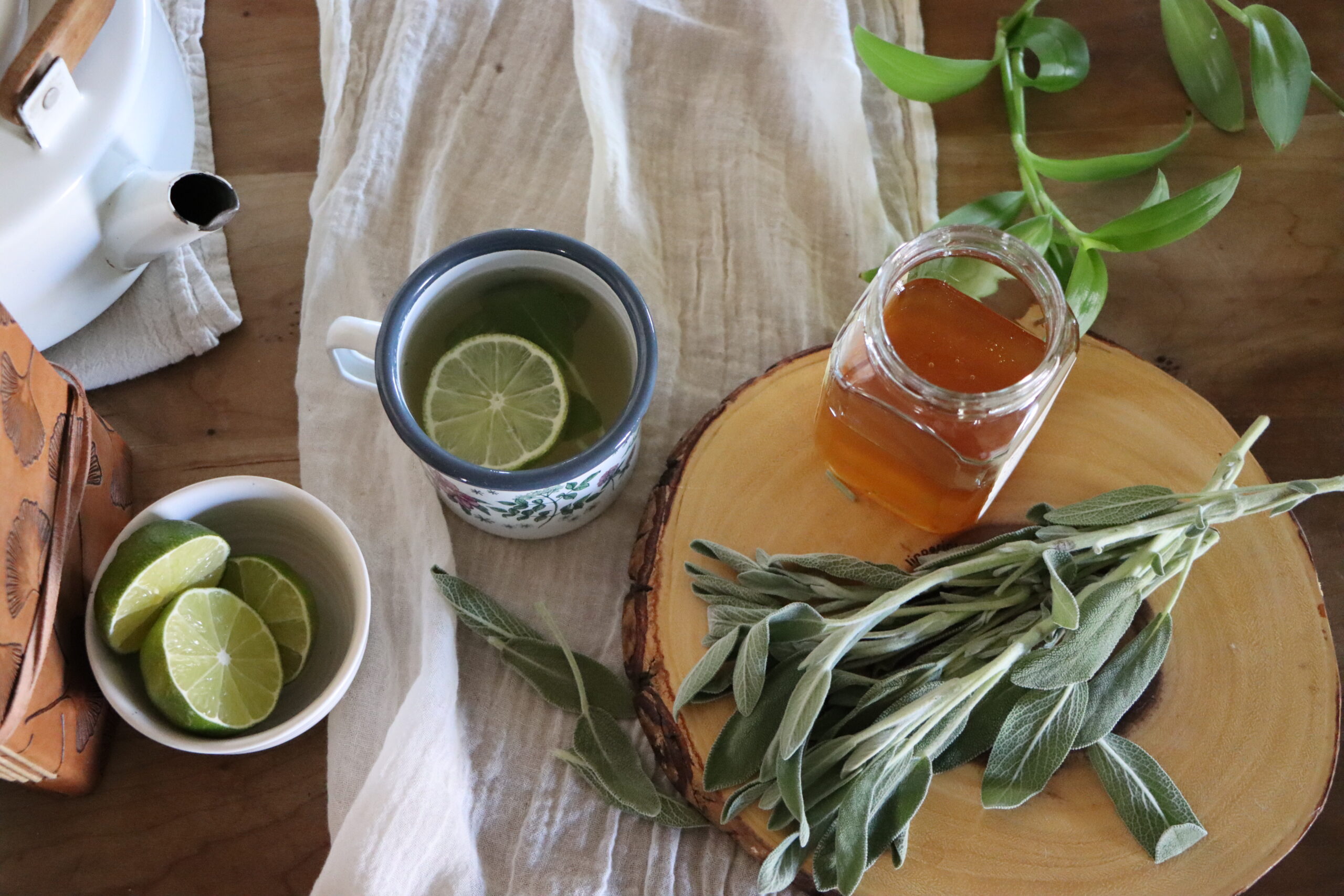
Sore Throat Tea Ingredients
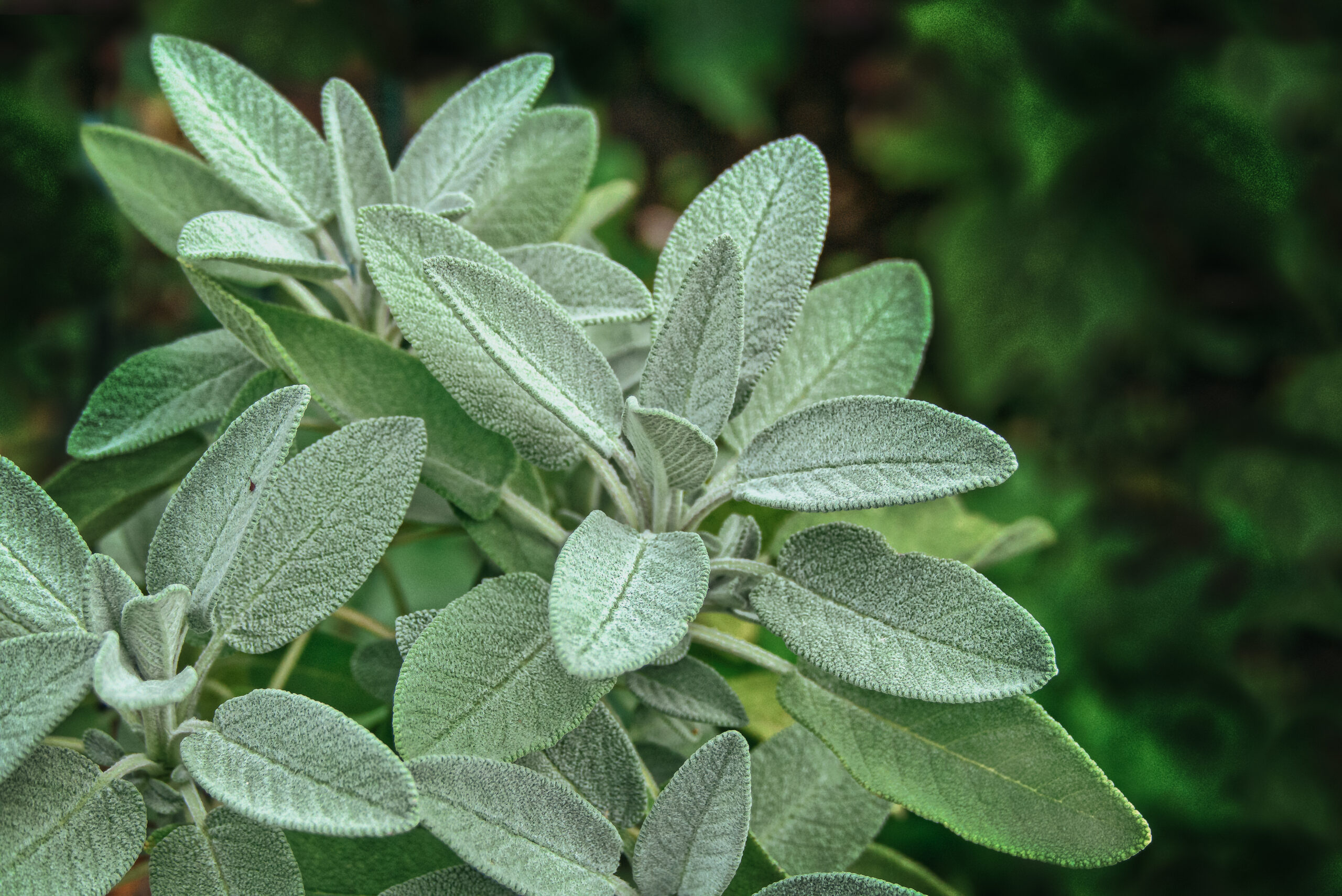
Sage: The Star Ingredient
At the heart of Abuelita’s Sore Throat Tea is sage (Salvia officinalis) leaf, a popular herb known for its powerful support during seasonal changes. Sage has been used for centuries in traditional herbal practices, especially for throat discomfort and immune health (Alsanosi, 2024). Its slightly peppery, earthy flavor brings warmth to this tea, making it a go-to ingredient when you’re feeling run down.
Sage is also a beneficial source of antioxidants and contains natural compounds like rosmarinic acid (Luo et al., 2020), which may help soothe an uncomfortable throat and aid the body’s natural defenses. When steeped in hot water, sage releases its volatile oils, which can help calm irritated throat tissues (Ehrnhöfer-Ressler et al., 2013).
Beyond its soothing qualities, sage is also valued for its antimicrobial, immune-supportive properties, making it a wonderful ally for keeping your body strong during cold and flu season.
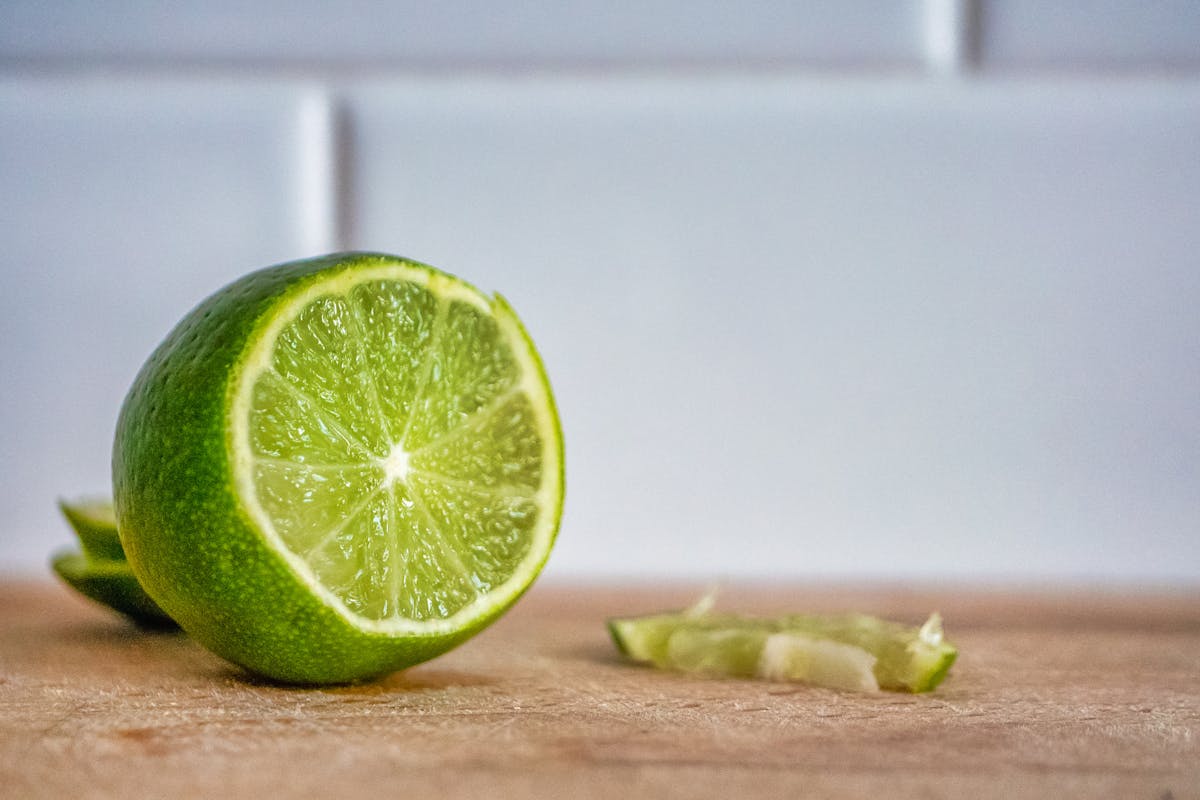
Lime
To enhance the benefits of this tea, Abuelita’s recipe also includes a splash of lime juice and a spoonful of honey. Lime juice is packed with vitamin C, which is essential for immune function and helps brighten up the flavor of the tea with a refreshing citrus note (Carr & Maggini, 2017).
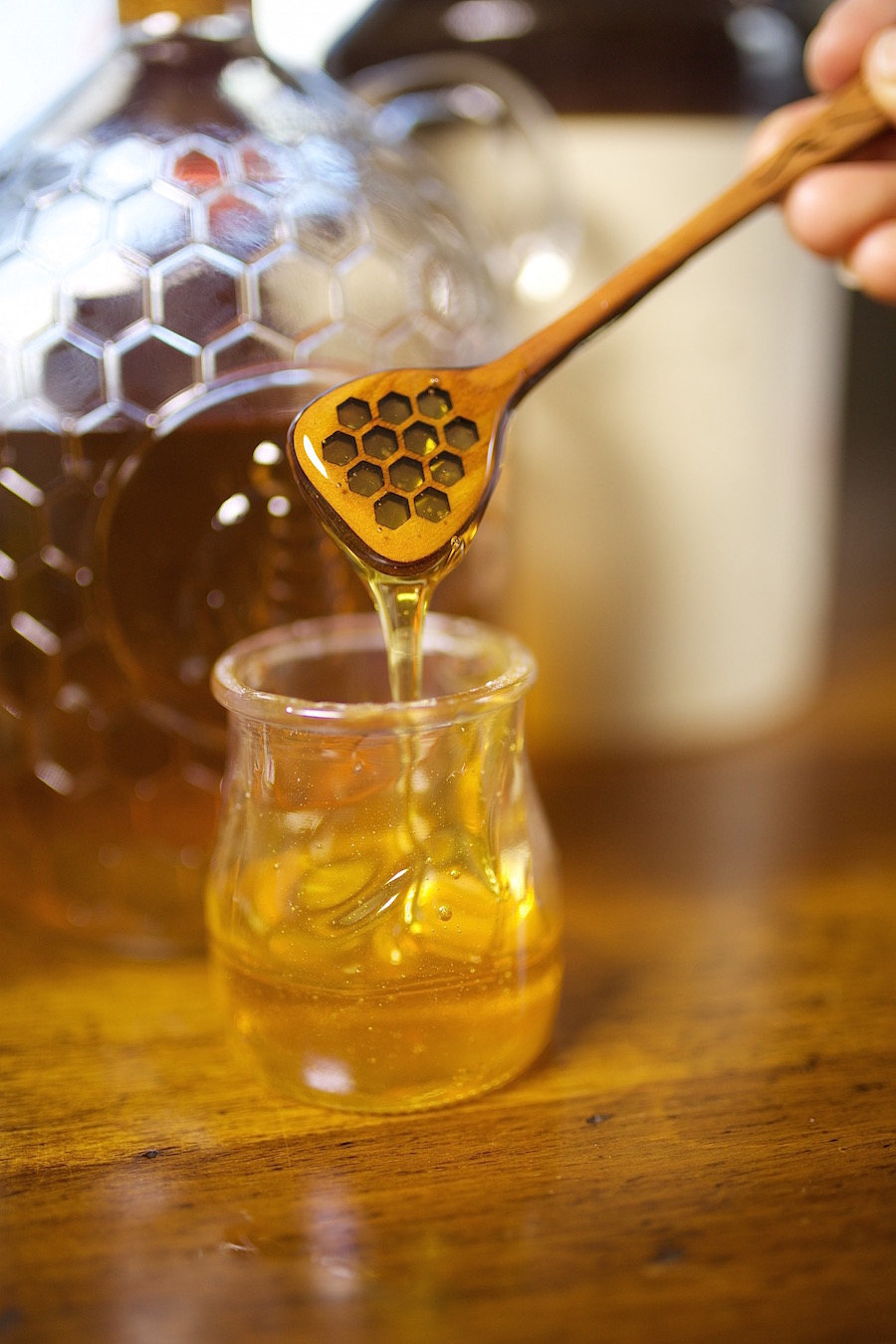
Honey
Honey helps to coat the throat, easing irritation and adding a touch of sweetness to balance the flavors. Its antimicrobial and antioxidant properties make honey a fantastic addition, helping to naturally strengthen your immune system (Samarghandian et al., 2017).
Whether you’re sipping this tea to help your throat feel better or looking to fortify your immune system, sage adds an extra layer of wellness to every cup. It’s no wonder that Abuelita’s recipe has been a family favorite for years!
Abuelita's Sore Throat Tea Recipe
Here’s a note from our team member about this special recipe: “When I was growing up, my abuelita (grandmother) would prepare honey and lime juice in hot water anytime someone in the family had a hoarse or sore throat. It’s a traditional recipe used in Latin America and across the world. Early in my herbal journey, I learned sage is especially useful for a sore or irritated throat, and it seemed like a perfect addition to my abuelita’s preparation. Now it’s become one of my go-to’s for a sore throat, and one day, I’ll share it with my nietos (grandchildren)!”
– Cristina Asensio Foley
Yield: One 8 fl oz serving.
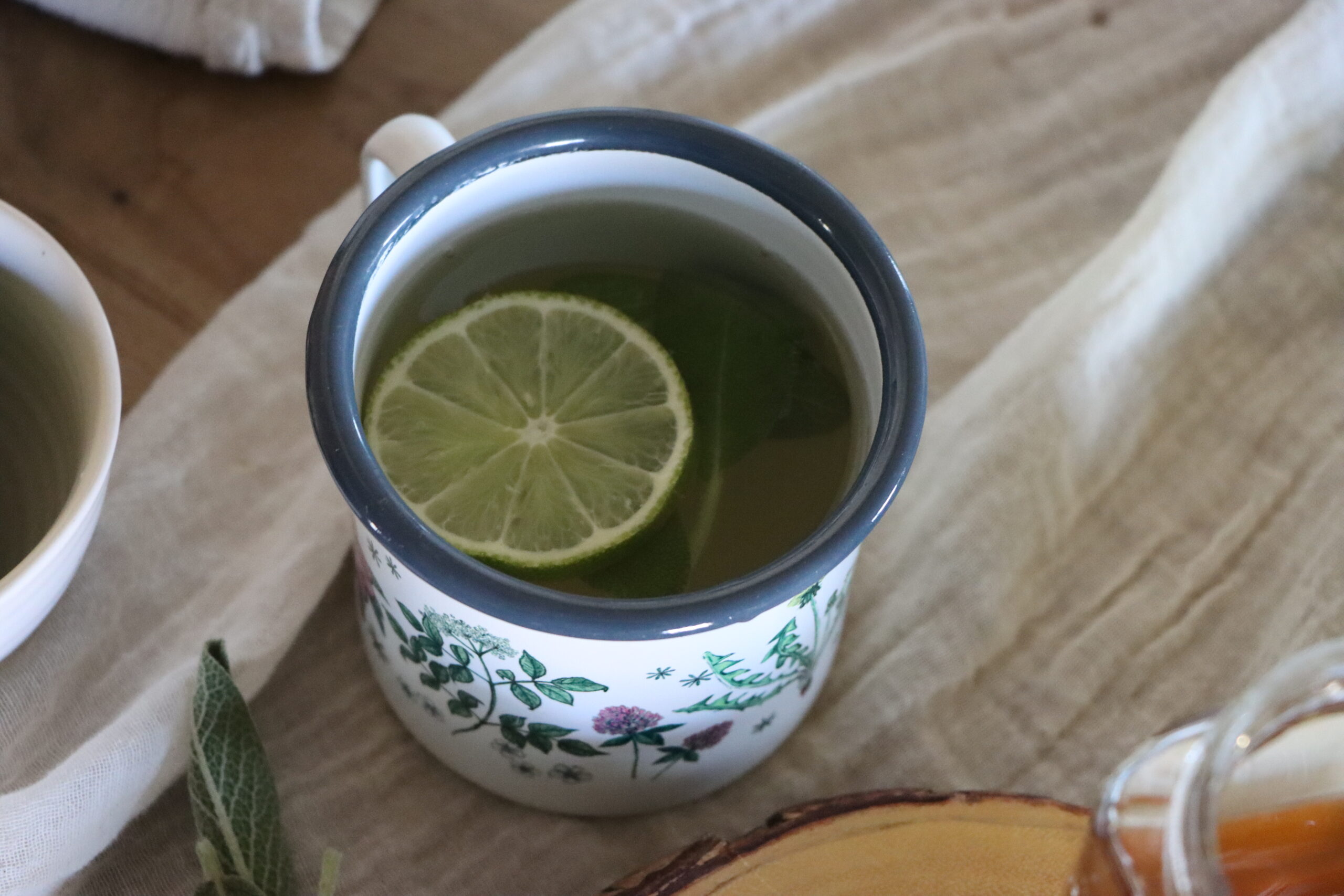
A Cup of Comfort
When we’re unwell, there’s nothing quite like the familiar warmth of a beloved family recipe to help us feel cared for. It’s a sweet reminder that nourishment comes in many forms—sometimes in the food we eat, sometimes in the traditions we hold dear.
In those quiet moments of sipping tea, we’re reminded to slow down, listen to our bodies, and give ourselves the care we need. It’s about honoring the knowledge passed down through generations and embracing the simple joys of self-care.
If you’re looking for more ways to nourish yourself with herbal teas, our Botanical Teas Recipe Book is filled with over 150 herbal blends that bring wellness into your daily life. Or, if you want to dive into the art of blending your own teas, our Tea Blending 101 Mini Course is a great place to start your journey, and it now comes with lifetime access!
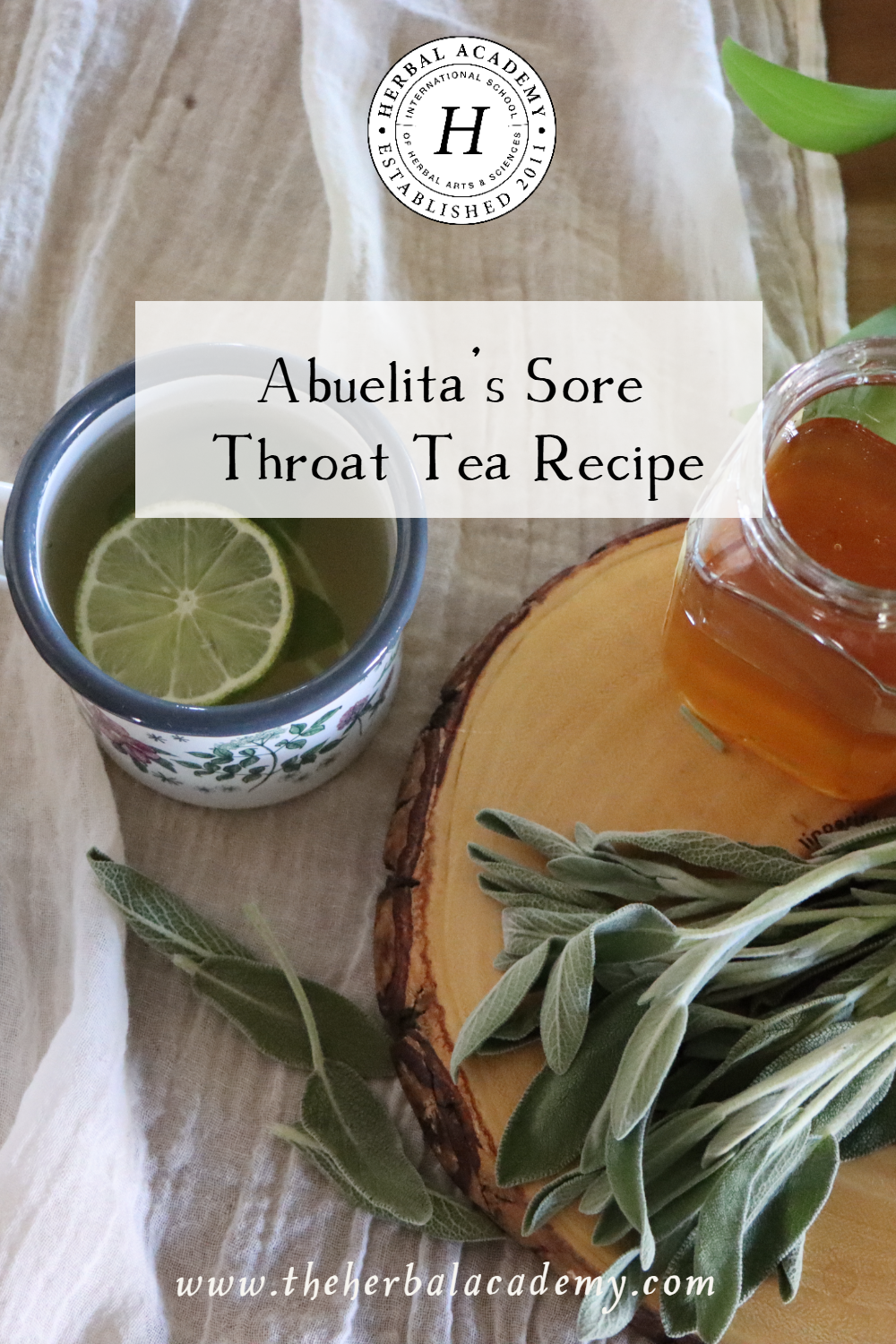
REFERENCES
Alsanosi, S. M. (2024). Sage (Salvia officinalis), Known as “Maramia” in Arabic Culture: An Overview and Herbal Monograph. Pharmacognosy Research, 16(3), 467–471. https://doi.org/10.5530/pres.16.3.56
Carr, A. C., & Maggini, S. (2017). Vitamin C and immune function. Nutrients, 9(11), 1211. https://doi.org/10.3390/nu9111211
Ehrnhöfer-Ressler, M. M., Fricke, K., Pignitter, M., Walker, J. M., Walker, J., Rychlik, M., & Somoza, V. (2013). Identification of 1,8-Cineole, Borneol, Camphor, and Thujone as Anti-inflammatory Compounds in a Salvia officinalis L. Infusion Using Human Gingival Fibroblasts. Journal of Agricultural and Food Chemistry, 61(14), 3451–3459. https://doi.org/10.1021/jf305472t
Luo, C., Zou, L., Sun, H., Peng, J., Gao, C., Bao, L., Ji, R., Jin, Y., & Sun, S. (2020). A Review of the Anti-Inflammatory Effects of Rosmarinic Acid on Inflammatory Diseases. Frontiers in Pharmacology, 11. https://doi.org/10.3389/fphar.2020.00153
Samarghandian, S., Farkhondeh, T., & Samini, F. (2017). Honey and Health: A Review of Recent Clinical Research. Pharmacognosy Research, 9(2), 121–127. https://doi.org/10.4103/0974-8490.204647








